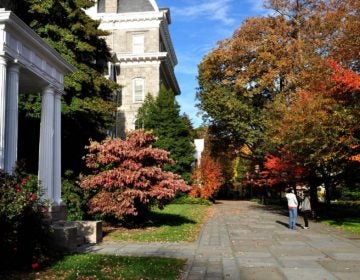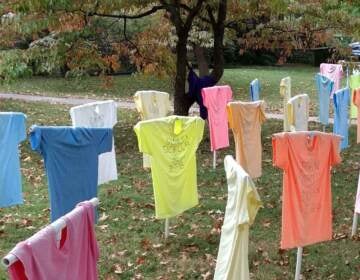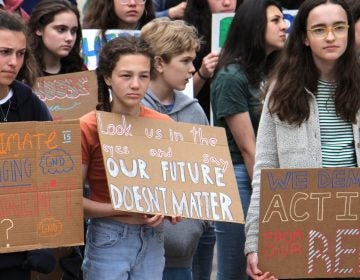Swarthmore professor urges colleagues to cancel class for climate strike
Swarthmore College professor Lee Smithey urges educators around the world to cancel classes for a “global climate strike” on Sept. 20.
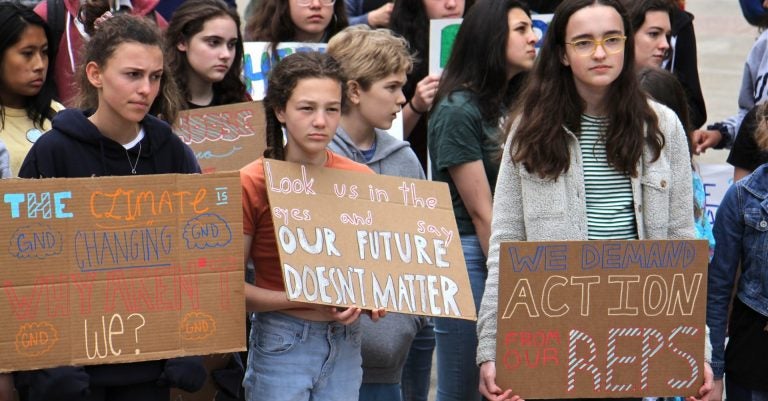
Philadelphia students cut class on Friday, May 3, 2019 to participate in a rally at Thomas Paine Plaza to protest inaction on climate change issues. (Emma Lee/WHYY)
Swarthmore College professor Lee Smithey says sometimes it’s the students who teach.
Both students and staff at his small college in Delaware County are actively fighting to stop what he calls a “climate crisis.”
Smithey is a professor of peace and conflict studies and sociology. He says bringing climate change into his courses doesn’t feel like enough anymore.
“We can no longer teach our way out of this problem,” Smithey said. “We stand at the edge of a climate crisis that requires movement-building. And thankfully, our students are leading the way and they are giving us a great opportunity to get involved.”
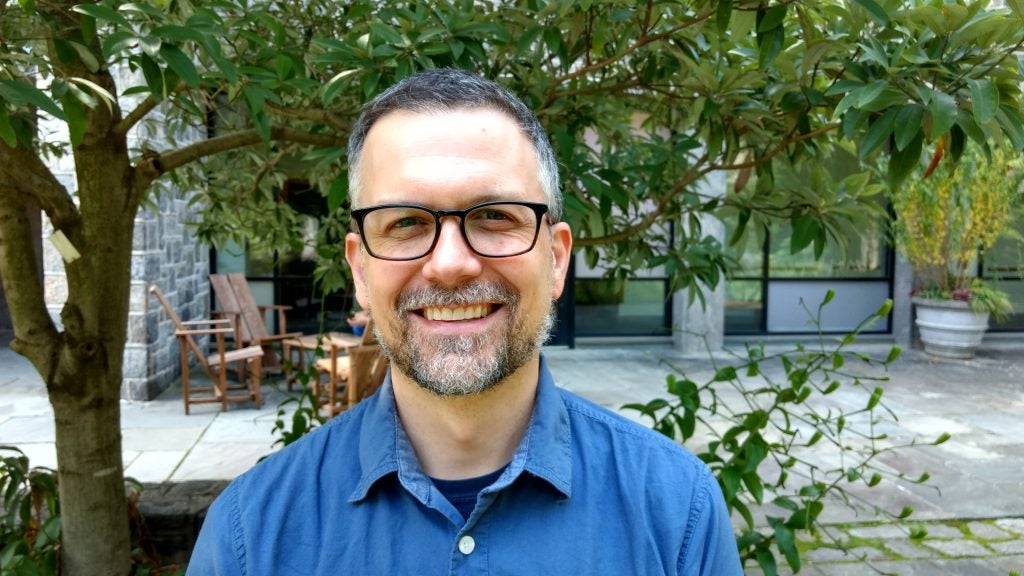
Swarthmore students started a national campaign for schools to stop investing in fossil fuel companies in 2011. Some of Smithey’s former students lead the Sunrise Movement, the national climate youth group pushing for the Green New Deal. And many of his current students participate in the global strikes happening this year, inspired by Greta Thunberg, a 16-year-old from Sweden, who started missing classes last year to protest against the lack of action on climate change.
Inspired by the students, Smithey is encouraging fellow educators to cancel their classes on Sept. 20 and join the next “global climate strike,” happening three days before the United Nations climate summit in New York. Last month, Thunberg took a two-week zero-carbon emission journey across the Atlantic Ocean to get to the United States and participate in the meeting.
Smithey and eight other professors from around the country say the best lesson plan their colleagues can implement this school year is to get outside their classrooms and into the streets with their students.
“Look, I think a lot of us educators — like all sorts of other people, and all sorts of other professions — are grappling with this moment. The students are holding it up in front of us. And we’re going to have to change our habits and our routines as we go forward in ways we can’t even imagine yet. This is one opportunity to practice changing our routines and not doing business as usual,” Smithey said.
Smithey says visibility will be the biggest lesson of the day: seeing that many people are concerned about climate change and that together they hold more power.
Aru Shiney-Ajay, a 21-year-old Swarthmore student, agrees. Seeing how floods have grown in Southern India every year during her family’s trips back home scared her. And for a while, she felt she couldn’t do anything about it, she said, until she participated in the sit-in in front of Nancy Pelosi’s office in Washington, D.C. that pushed to advance the Green New Deal.
“I remember feeling for the first time that actually social movements have the power to change the conversation and to really put forward solutions on the scale that science and justice demanded,” Shiney-Ajay said.
Last January, Shiney-Ajay interrupted her studies to become the training director for the Sunrise Movement.
“For me to choose to sit in a classroom and spend all my time studying feels like it is turning my back on where history calls upon my generation to be,” she said. “It feels like our generation has left with a crisis that we did not cause. Why are we at 16, 17, 21 … the ones leading this? Why couldn’t it be someone older? Why couldn’t be the adults in the room who have figured out how to stop the climate crisis?”
Sixteen-year-old Sabirah Mahmud is a sophomore at Academy at Palumbo high school and an organizer for the Sept. 20 climate strike happening at Philadelphia City Hall. She says as much as she would love to see her teachers show up to the event, she doesn’t think it’s realistic.
“I don’t think that they would strike,” she said. “And if they do, the school would set up a substitute to teach that class.”
So far, more than 500 educators from Philadelphia and all over the world have committed to cancel their classes and strike with their students.
Editor’s note: This article has been updated to reflect the number of educators committed to cancelling classes at the time of publication.
WHYY is your source for fact-based, in-depth journalism and information. As a nonprofit organization, we rely on financial support from readers like you. Please give today.


